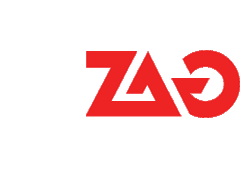
For the Record: How Blockchain is Changing ERP
ERP and Blockchain
Without a doubt agencies around the world will be familiar with Enterprise Resource Planning (ERP) software. Indeed, it’s virtually unheard of in today’s fast-paced advertising industry that an agency can remain competitive without one. For today’s competitive agency, everything from Customer Resource Management (CRM) to production planning to project management to marketing and sales, materials and inventory management, to finance can (and should) be integrated in an effective ERP solution.
But not all agencies will be as familiar with Blockchain as they are with ERP technology. This is because Blockchain, while rapid gaining popularity in recent years, is generally not considered to be a part of the standard set of agency tools. Blockchain is a distributed electronic ledger that keeps a running record of all sorts of transactions, which can be shared among any private or public network of users.
Blockchain is the underlying technology behind cryptocurrency, allowing communities to create and circulate various kinds of “coins” such as the well-known Bitcoin and Ethereum. So, what does this mean for agencies and ERP solutions?
Beyond Cryptocurrency
Many have commented on the implications cryptocurrency has introduced for the advertising industry, some going so far as to suggest an impending “revolution.”[1] But Blockchain goes far beyond crypto. Blockchain allows users to create a series of records that can be added to but can never be changed. One simply cannot “undo” a transaction much like one can’t shoplift gold from Fort Knox.
Yet Blockchain is no longer used strictly for cryptocurrency. This kind of immutable ledger, along with its financial applications, allows an unprecedented level of shared accountability and distributed trust for all sorts of record keeping activities that are central to ERP functions. Shipping manifests, supply chains, equipment maintenance, and various systems of dispute resolution can now be shared through Blockchain technology.[2]
Blockchain Collaboration
Effective ERP solutions will be integrating the best parts of Blockchain for core collaborative functionality, especially as it pertains to transactions. Blockchain ERP applications that are currently in development draw upon the principle dimension of Blockchain as a distributed ledger system that allow business terms to be automatically integrated into transactions (“smart contracts”), while also providing foolproof levels of privacy and accountability for all parties involved.[3]
This means that businesses no longer have to cordon off streams of transaction data, and they can truly work collaboratively through a Blockchain paradigm that is distributed, transparent, and secure.
Collaboration requires access to shared data, an integral part of any transaction: if you and I make a deal, we should both have access to the same facts of that deal. Yet according to Brigid McDermott, vice president of Blockchain Business Development at IBM, up to eighty percent of corporate data lives in isolation.[4] Such silos can be the enemy of genuine collaboration and accountability.
Blockchain not only provides a distributed site for sharing such data, but it also creates a mutually accessible space of confidence for a community of users. As McDermott notes, “Permission Blockchain gives you that confidence that you can control your information and grant access only to those you want to grant access to. […] It’s the freedom of feeling like I’m doing what’s in my business’ best interest by being able to share whatever I want, whenever I want it, in a way that’s immutable, trusted, secure.”[5]
The Future of Blockchain and ERP
No one is going so far as to say that Blockchain will replace ERP software.[6] But from what we’ve seen, Blockchain will have a significant impact on ERP functionality along with its architecture.
For agencies using ERP solutions, this kind of functionality has many important implications for everything from CRM to project management to financial transactions.
Blockchain is already transforming the way many businesses are investing. It has also raised some important issues around privacy and regulation (see, for example, the recent case in which the US Securities and Exchange Commission (SEC) suspended trading activity of The Crypto Company).[7]
We cannot yet know all the ways ERP will utilize Blockchain. Only time will tell us the myriad ways Blockchain will be used. In the meantime, agencies will be keeping an eye on these developments in order to stay competitive, but also in order to collaborate.
